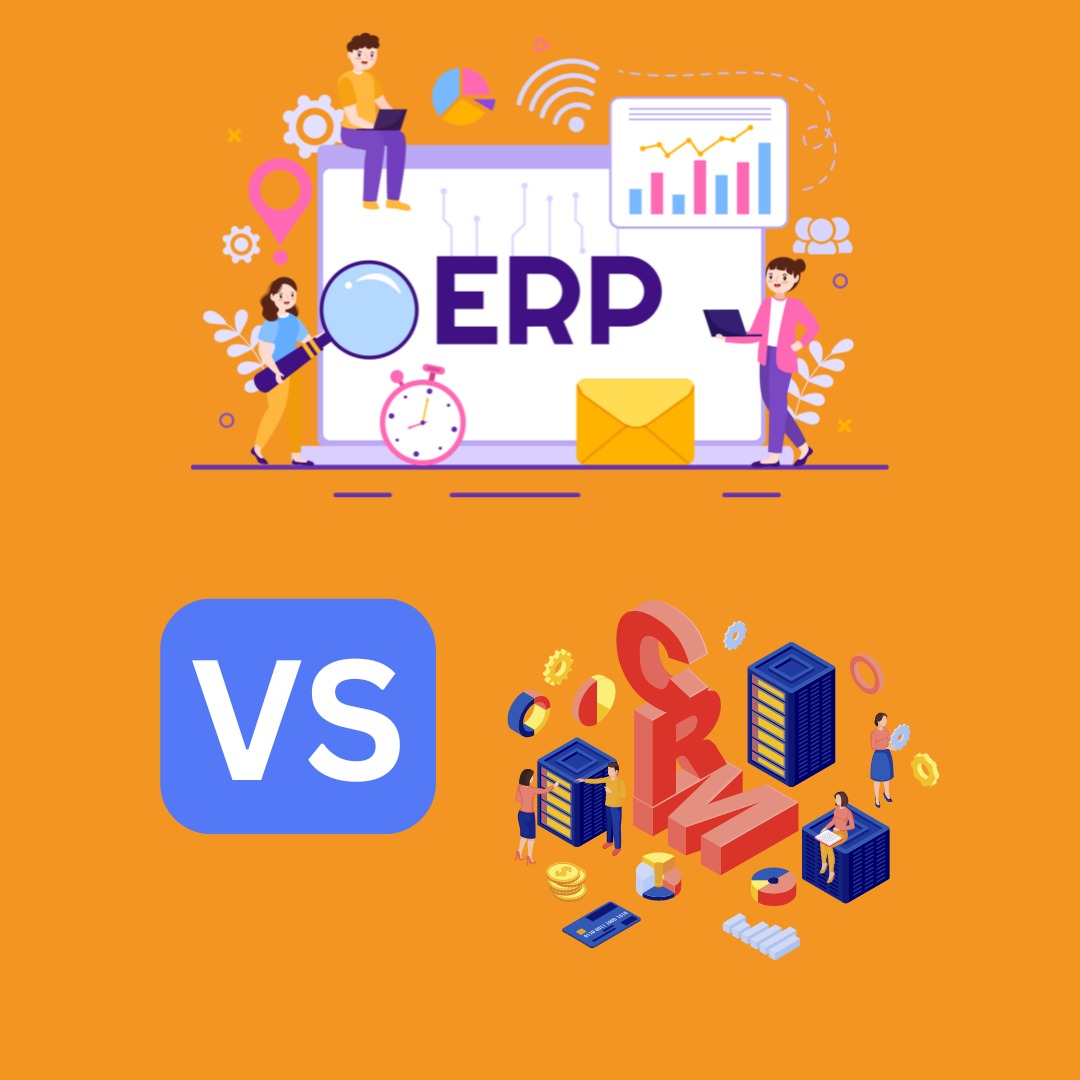ERP & CRM Software
Enterprise Resource Planning (ERP) and Customer Relationship Management (CRM) software are two distinct but closely related types of software used by businesses to manage different aspects of their...

Enterprise Resource Planning (ERP) and Customer Relationship Management (CRM) software are two distinct but closely related types of software used by businesses to manage different aspects of their operations. Here's a breakdown of their functions in a point-wise fashion:
ERP (Enterprise Resource Planning) Software:
-
Integration: ERP software integrates various business processes and functions into a single unified system. It connects departments like finance, HR, manufacturing, supply chain, and more, allowing data to flow seamlessly between them.
-
Financial Management: It handles accounting, financial reporting, budgeting, and forecasting. ERP software helps manage accounts payable, accounts receivable, general ledger, and financial analysis.
-
Inventory Management: ERP systems track and manage inventory levels, optimize procurement, and reduce carrying costs. They provide real-time visibility into stock levels and can trigger reorder points.
-
Production and Manufacturing: ERP software assists in managing the entire production process, from planning and scheduling to quality control and maintenance. It optimizes resource allocation and production efficiency.
-
Supply Chain Management: ERP systems facilitate supply chain coordination, helping businesses source materials, manage suppliers, and ensure the timely delivery of products to customers.
-
Human Resources Management: ERP software handles HR functions such as payroll, employee records, performance management, and workforce planning. It also assists in compliance with labor regulations.
-
Customer Order Management: ERP systems process customer orders, track order status, and manage order fulfillment, ensuring on-time delivery and customer satisfaction.
-
Reporting and Analytics: ERP software provides tools for generating reports and analyzing data across various business functions. This data-driven insight supports decision-making and strategic planning.
-
Compliance and Regulatory Reporting: ERP systems assist in meeting regulatory requirements and generating compliance reports related to taxation, environmental regulations, and industry standards.
CRM (Customer Relationship Management) Software:
-
Customer Information Management: CRM software stores and organizes customer data, including contact information, purchase history, and communication history, in a centralized database.
-
Sales Automation: CRM systems automate sales processes, including lead management, opportunity tracking, and sales forecasting. They help sales teams prioritize leads and close deals more efficiently.
-
Marketing Automation: CRM software supports marketing efforts by automating tasks like email marketing, lead nurturing, and campaign management. It helps businesses target and engage with their audience effectively.
-
Customer Service and Support: CRM systems provide tools for managing customer inquiries, complaints, and support requests. They enable businesses to deliver timely and personalized customer service.
-
Contact and Communication Management: CRM software tracks all interactions with customers, including phone calls, emails, and meetings. This information helps build better customer relationships.
-
Analytics and Reporting: CRM systems offer analytics and reporting features to measure the effectiveness of marketing campaigns, sales performance, and customer satisfaction.
-
Workflow Automation: CRM software streamlines business processes by automating repetitive tasks and ensuring that customer interactions are handled consistently.
-
Customer Segmentation: CRM systems allow businesses to segment their customer base based on various criteria, enabling targeted marketing and personalized customer experiences.
-
Integration: CRM software can integrate with other tools and systems, such as email, social media, and e-commerce platforms, to provide a comprehensive view of customer interactions.
In summary, ERP software focuses on managing internal business processes and resources, while CRM software concentrates on managing customer interactions and relationships. However, both types of software can complement each other when integrated to provide a holistic view of the customer lifecycle from initial contact to post-sale support.
Pricing
Category
Software DevelopmentInterested in ERP & CRM Software?
Contact us today to learn more about how we can help you with ERP & CRM Software.
Get In Touch